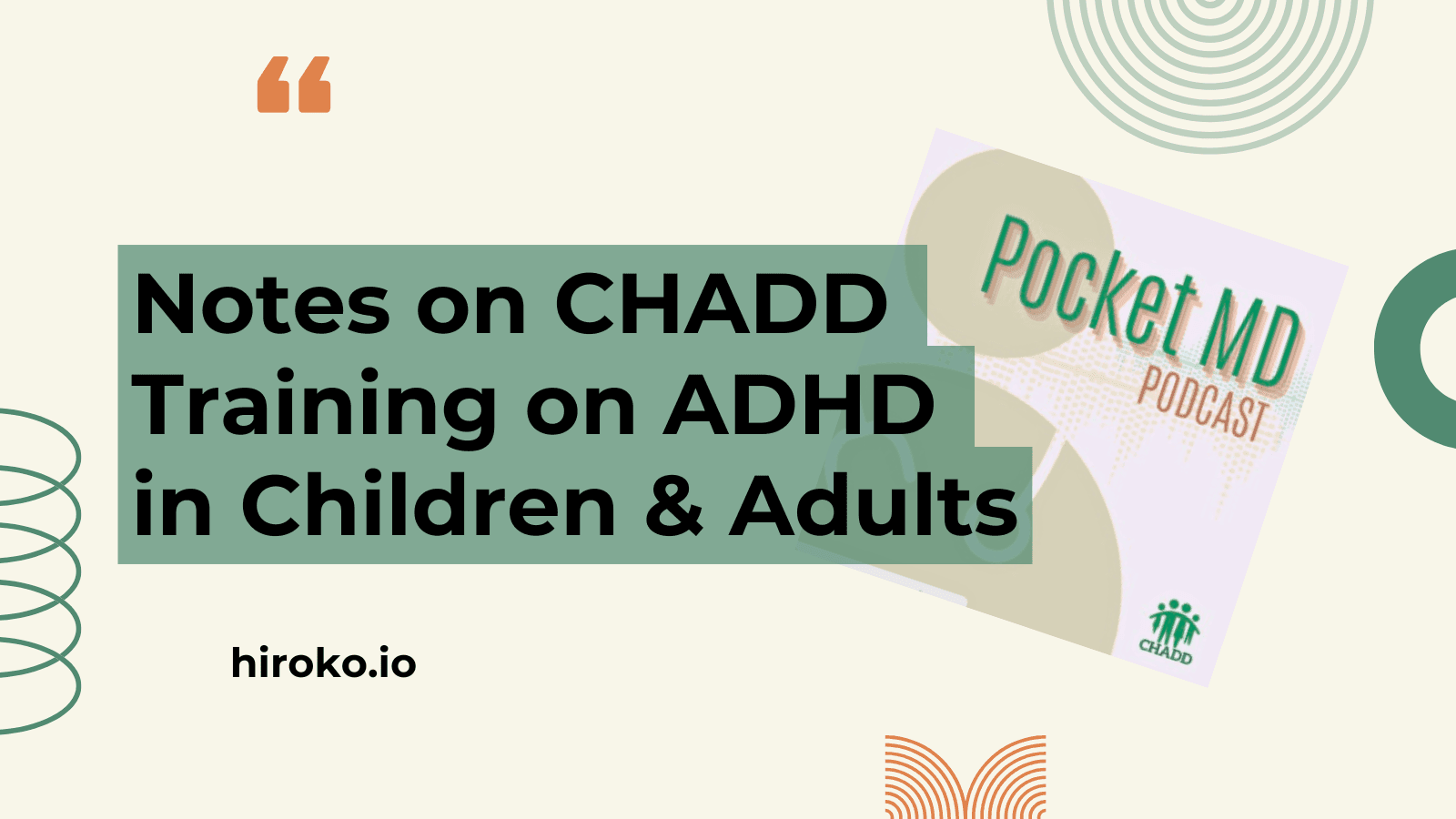This post summarizes the podcast titled “ADHD and Learning Disorders” in the series “Training on ADHD in Children and Adults” by Pocket MD. Pocket MD is a podcast hosted by CHADD (Children and Adults with Attention-Deficit/Hyperactivity Disorder).
“ADHD and Learning Disorders” (PD4457R-020125N )
Learning Disorders and Learning Disabilities
- Specific Learning Disorders: unanticipated difficulties including one or more areas of learning
- “Unexpected”/”unanticipated” difficulties: learning challenges not better explained by intellectual delays, uncorrected sensory issues (vision/hearing delays/impairments), lack of proficiency in English, inadequate instruction, chronic absenteeism
- Challenges that significantly disrupt normal learning process
- Dyslexia, dyscalculia, dysgraphia, etc.
- Different names:
- Clinical diagnosis: “Specific learning disorder“
- Education/legal systems: “Learning disability“
- Around 20% of children with ADHD have learning delays or challenges
- ~80% of those with learning disabilities have disabilities involving reading (dyslexia)
ADHD and Learning Disorders
- Both have potential to interfere with educational performance and aptitude
- Individuals with both may show avoidance for effortful tasks associated
- ADHD: impacts performance as opposed to learning/skill development
- Tackling ADHD symptoms can improve learner’s availability for learning
- Having both ADHD and learning disorders predict worse mental health outcomes compared to those with learning disorders without ADHD
- Risk of misdiagnosis between the two
Diagnosing Learning Disorders
- Trained practitioners can help minimize poor outcomes and improve overall trajectories by diagnosing interventions that involve parents and educators
- Understand learning challenges and accompanying behavioral and emotional needs
- Physician can make a referral to the child’s school to understand needs and profiles
- Different goals depending on professional’s profession
- Role of school provider: determine eligibility for educational service and support
- Independent practitioner: formal diagnostic determination of disorders
- “Signs” of struggling learners precede onset of reading/writing/math issues
- Speech/language issues
- Auditory Processing Disorder: inability to accurately process/discriminate acoustic signals (independent of auditory acuity)
- Motor delays
- Trouble appropriately expressing frustration
- Must persist for at least 6 months despite interventions that target the areas of difficulty
- Must create significant impairment and interfere with learning or daily activities that require the skills learned
- DSM-5: can be identified once formal instruction begins, but challenges may not manifest significantly until demands exceed students’ capacities (may take a while for those with high IQ)
- Measures most sensitive at finding disorders at or beyond 7 years old
Treating ADHD and Learning Disorders together
- Utilize evidence-based strategies to target each condition
- Medications do not help learning disorder and tutoring does not help ADHD but medication helps ADHD and tutoring helps learning disorder
- Developmental Coordination Disorder: disorder of hand coordination and fine motor skills (may impact writing); not a learning disorder
- Nonverbal Learning Disorder: difficulty processing/management of nonverbal information
- Issues with spacial analysis, visual patterns, directionality
- Struggle with reading facial cues, “reading between the lines”
- Elevated anxiety/depressive symptoms
- Impacts motor skills, inferencing, nonliteral language, computation skills, executive functioning
- May be very highly verbal
- May be related to Autism, Aspergers
What can parents do?
- Be vigilant, engaged, and partner with educators to keep an eye on their development
- Actively pursue comprehensive evaluation if there are early indicators
- Actively support effort, not just outcomes
Want to read more of my summaries?
Main page on this blog that collects all of these summaries (and links to course content) is here:
